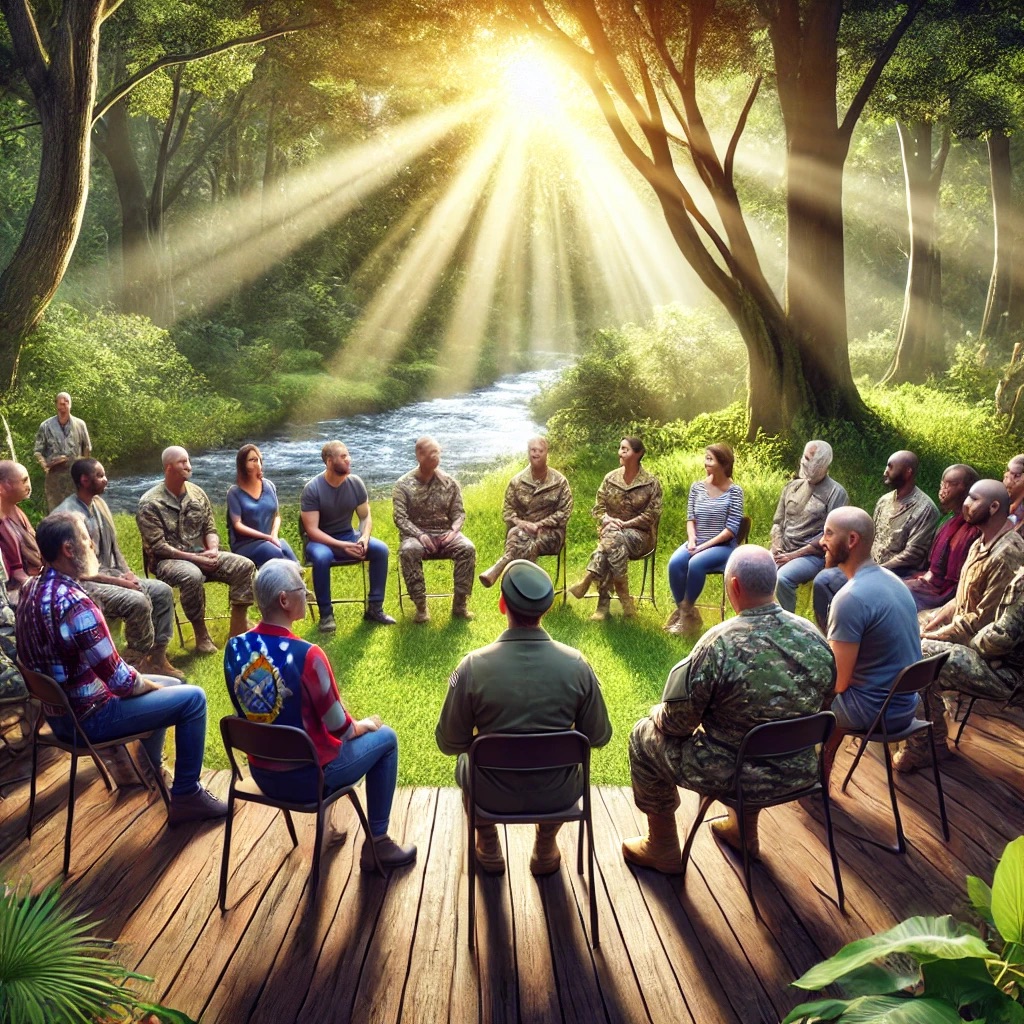As veterans, we are part of a unique group of individuals who have served and sacrificed for our country. Along with that service often comes challenges that many of us didn’t anticipate—whether it’s dealing with PTSD, coping with drug or alcohol addiction, or simply navigating the complexities of transitioning to civilian life. Fortunately, there are many therapy options available, both outpatient and inpatient, designed to help us heal, rebuild, and thrive.
These programs are offered by the VA and private organizations, providing a diverse range of approaches to meet individual needs. Having personally experienced the benefits of both inpatient and outpatient therapy, I can attest to the profound impact they can have on a person’s life.
First and foremost, there is nothing wrong with finding yourself in a place where you need extra help. In fact, recognizing that need and seeking assistance is one of the most courageous steps you can take. As veterans, we’ve earned access to these resources through our service. The question isn’t whether we deserve them—because we do. The only question is which program is the right fit for your needs right now.
One of the most effective resources I’ve encountered is the Residential Rehabilitation Treatment Program (RRTP) offered by the VA. This live-in program provides structure, community, and comprehensive therapy designed to address both mental health and substance use challenges. For me, it was transformative. The tools, support, and sense of camaraderie I found there were instrumental in my recovery. I know many other veterans who have had similar experiences with RRTP and have emerged stronger, more centered, and ready to tackle life’s challenges.
But RRTP is just one option among many. Another program that had a profound impact on my journey was an online therapy program. It lasted three weeks, with intensive sessions held on Monday, Wednesday, and Friday for eight hours a day. While it was demanding, the combination of structured learning, group discussions, and meaningful homework assignments helped me uncover new insights about myself and stay on the path to healing.
The beauty of these programs—whether they’re inpatient, outpatient, or virtual—is that they are tailored to meet you where you are in your journey. Some veterans thrive in structured, immersive environments like RRTP, while others benefit more from flexible, at-home programs that allow them to maintain their daily routines.
There are also programs that focus on holistic approaches, combining traditional therapy with activities like yoga, meditation, or outdoor therapy, which can be incredibly grounding. Peer support groups, art therapy, and equine therapy are other options that have proven effective for many veterans. The key is exploring what resonates with you and what fits your current needs.
No matter which path you choose, it’s important to remember that healing is a process, not a destination. There will be ups and downs, but each step forward is a victory. And most importantly, you are not alone in this. There are countless people—fellow veterans, therapists, and program staff—who want to support you, cheer you on, and see you succeed.
If you’re considering therapy, take that first step. Reach out to your local VA, explore private organizations, or talk to someone who has been through it.
1. VA Residential Rehabilitation Treatment Programs (RRTPs):
The VA operates approximately 250 programs at around 120 residential rehabilitation sites across the country, providing comprehensive treatment and rehabilitation services to veterans with mental health conditions like PTSD, depression, and substance use disorders.
2. VA Substance Use Disorder (SUD) Program Locator:
This tool helps veterans find local VA treatment programs that address various substance use problems, offering services from health effects management to addressing life-threatening behaviors.
3. Online Therapy Programs:
• Vets Prevail: An online mental health program developed by veterans, combining principles of Cognitive Behavioral Therapy (CBT) with interactive e-learning techniques to address challenges like depression and PTSD.
• PTSD Coach App: Developed by the VA’s National Center for PTSD, this mobile app provides education about PTSD, self-assessment tools, and support resources.
4. Wounded Warrior Project’s Warrior Care Network:
This program offers intensive outpatient programs and therapy sessions for veterans dealing with PTSD and traumatic brain injury, including the use of virtual reality therapy.
5. VA Mental Health Services:
The VA provides evidence-based treatments for various mental health concerns, including PTSD and substance use disorders.
6. VA’s PTSD Residential Treatment Programs:
These programs offer intensive 24/7 services for veterans working toward recovery from PTSD.
7. VA’s Substance Use Treatment Services:
The VA offers a range of services to help veterans overcome substance use problems, including therapy, counseling, and support groups.
These resources are designed to provide veterans with the support and treatment necessary to address PTSD and substance use disorders effectively. It’s important to explore these options and choose the program that best fits your current needs and circumstances. See you out there.
Discover more from Inside the mind of Wade
Subscribe to get the latest posts sent to your email.



